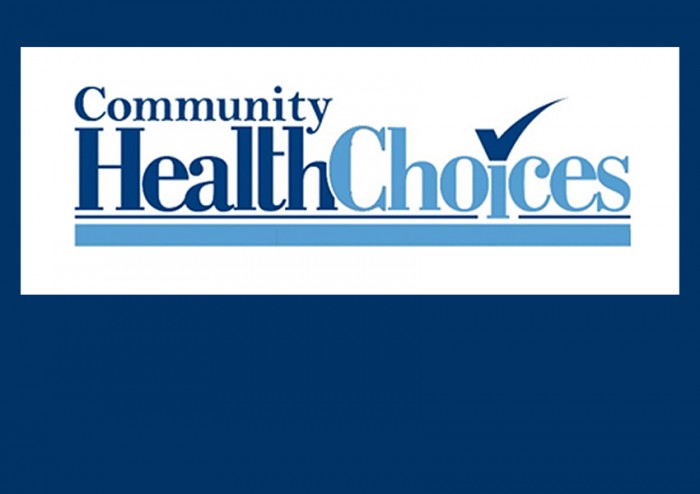On February 5, 2020, ninety-nine members of the House of Representatives signed and sent a letter to Seema Verma, Administrator, Centers for Medicare and Medicaid Services (CMS), that questions the proposed eight percent cut to therapy services. The proposed cut was included in the calendar year (CY) 2020 Medicare Physician Fee Schedule (MPFS) final rule that was published on November 15, 2019. The letter contained two questions asked of CMS, including the methodology and data that were used in this decision making. The responses to these questions were requested by February 21, 2020. Contact RCPA Rehabilitation Services Division Director Melissa Dehoff with questions.
OPEN MINDS Presentation on Managed Care and IDD
DHS Resource Link for Community HealthChoices
The Pennsylvania Department of Human Services has released a question and answer link for Community HealthChoices (CHC). The link is a good resource to find explanations regarding general information, billing, and a variety of other resources concerning the CHC program.
Technical Assistance for Competitive Integrated Employment: Participants Needed ASAP
Invitation to Rep. Hohenstein’s January 16 Disability Summit
You are cordially invited to Representative Joseph Hohenstein’s all-day summit in Philadelphia on Thursday, January 16. The summit will highlight the 30th Anniversary of the Americans with Disabilities Act (ADA). The Democrat Caucus will also be holding two separate policy hearings during January to recognize this occasion.
Register for Rep. Hohenstein’s Philadelphia event here, which will be hosted at Community Behavioral Health. There are a number of confirmed speakers ranging from service providers, the Philadelphia Eagles (discussing the Quiet Room at Lincoln Financial Field), Comcast (discussing technological advances to help people with intellectual disabilities access the internet and communicate), Senator Casey’s and Gov. Wolf’s offices (to discuss federal and state legislative initiatives), as well as others.
If you have any questions, please contact Jack Phillips, RCPA Director of Government Affairs.
CHC Third Thursday Webinar Scheduled for January 16
The next Community HealthChoices (CHC) Third Thursday webinar has been scheduled for January 16, 2020 from 1:30 pm – 3:00 pm. During this webinar, Office of Long-Term Living’s (OLTL’s) Deputy Secretary Kevin Hancock will provide updates on the CHC program. Providers should register to participate in the webinar. Once registered, a confirmation email will be sent and will include the call information. Questions about the webinar should be directed to OLTL’s Bureau of Policy Development and Communications Management at 717-857-3280.
CMS Approves OLTL’s Community HealthChoices Waiver Renewal
The Centers for Medicare and Medicaid Services (CMS) has approved the Office of Long-Term Living’s (OLTL) Community HealthChoices (CHC) Waiver renewal. The renewal became effective on January 1, 2020.
Key changes in the approved waiver include:
- Revised the Residential Habilitation service definition by modifying the number of hours that are defined as a day unit from a minimum of 12 hours to a minimum of 8 hours.
- To the service definitions of Job Finding, Job Coaching, Employment Skills Development, Career Assessment and Benefits Counseling, added language that Office of Vocational Rehabilitation (OVR) services are considered to not be available if OVR has not made an eligibility determination within 120 days; and added language to address when employment services through the CHC waiver can be provided should OVR close the order of selection, thereby creating a waiting list for OVR services.
- Modified the qualifications for Service Coordinators and Service Coordinator supervisors.
- Clarified that if a CHC Managed Care Organization (MCO) identifies that a participant has not been receiving services for 5 or more days, and if the suspension of services was not pre-planned, then the CHC-MCO must communicate with the participant to determine the reason for the service suspension within 24 hours. If the participant’s health status or needs have changed, the CHC-MCO must conduct a comprehensive needs reassessment of the participant’s needs within fourteen (14) days of identifying the issue.
- Added that an emergency back-up plan must be included in the Person-Centered Service Plan.
- Modified language to reflect that the CHC waiver will be fully operational statewide as of January 1, 2020.
- Updated language to reflect that the Department utilizes IDEMIA as the data system to process fingerprint-based Federal Bureau of Investigation (FBI) criminal record checks.
- Updated the OLTL bureau names and responsibilities.
Questions surrounding the CHC Waiver Renewal should be directed to the OLTL Bureau of Policy Development and Communications Management at 717-857-3280.
EVV Good Faith Effort Exemption Approved
On December 24, 2019, DHS announced the approval of the Department’s Good Faith Effort (GFE) Exemption application for the Electronic Visit Verification (EVV) implementation. This GFE does not change DHS’ expectations of providers of personal care services to comply with the requirements of the 21st Century Cures Act. The Department will continue with a soft launch period through June 30, 2020. Throughout this time, providers must begin using EVV and complete any integration and certification activities if they have not been completed already. The Department continues to develop a policy bulletin that will outline additional requirements, including compliance benchmarks for manually edited visits. This bulletin will be released as soon as it is finalized.
During claims processing in PROMISeTM, EVV validation against the EVV Aggregator will continue to be performed and EVV Error Service Codes (ESCs) will set without impacting claim payment. During the extended soft launch period, the expectation is that provider/provider agency/Agency with Choice and Vendor Fiscal/Employer Agent billing staff will note when the EVV edit(s) set and actively make corrections either to the data stored in the DHS EVV Aggregator or the claim itself to ensure errors do not repeat. DHS will be monitoring which EVV edits set and how often.
Regular updates to the stakeholder community will be made on the progress of the implementation. Outreach and technical assistance will be performed based on results and as applicable. As of July 1, 2020, any claims without a corresponding EVV visit or any mismatches between what is found on the claim versus what is found in the EVV Aggregator will be denied.
2020 EVV Implementation Timeline:
- January 1, 2020: All Providers must begin using EVV for Personal Care Services (PCS).
- January 2020 – March 2020: All Providers must complete system integration activities with the DHS Aggregator for fee-for-service programs. Providers who are experiencing difficulties in integrating and will not be ready by March 2020 are asked to submit an extension request using this form, documenting the difficulties they are experiencing no later than February 1, 2020. The completed form should be emailed to the EVV resource account.
- Starting July 1, 2020: Claims submitted for Personal Care Services without a matching EVV visit will be denied.
If providers have not yet completed the necessary steps to implement EVV, please contact the appropriate entity to complete the necessary training and system integration activities.
OLTL and ODP Fee-For-Service Providers
- The DHS Sandata system training is available for providers electing to use the DHS Sandata system. Providers using the DHS system must complete this training in order to begin setting up their agency accounts and security permissions. Providers may register for the independent web-based training offered through Sandata here.
- The DHS Aggregator will receive information from Alternate EVV systems being used by providers in fee-for-service programs.
- Providers using Alternate EVV systems should contact Sandata at 855-705-2407 to complete Alternate EVV system integration activities for fee-for-service programs.
Current Community HealthChoices (CHC) Providers and Aging, Attendant Care, and Independence Waiver Providers
- If providers are electing to use the HHAeXchange EVV system offered by the Managed Care Organizations (MCOs), providers must work with the MCOs to complete training and other onboarding requirements.
- Providers using Alternate EVV systems in CHC will need to send their EVV data to the CHC-MCOs.
- Providers should contact HHAeXchange to complete Alternate EVV system integration activities for CHC.
Wolf Administration Reminds NE, NW, & Central PA of CHC Plan Selection Deadline
Next Steps for OLTL Providers Implementing EVV
As a reminder, section 12006 of the 21st Century Cures Act requires all states to implement the use of EVV for Medicaid-funded personal care and home health care services. EVV must be implemented for personal care services by January 1, 2020, and for home health care services by January 1, 2023.
OLTL waiver services included in the initial implementation of EVV:
- Personal Assistance Services (Agency and Participant-Directed Model)
- Participant-Directed Community Supports
- Respite (unlicensed settings only)
As part of the soft launch period, claims submitted to PROMISeTM for services subjected to EVV will be validated against EVV visits submitted through the Department of Human Services (DHS) Sandata system or DHS Aggregator. During claims processing in PROMISeTM, EVV validation against the DHS Aggregator will continue to be performed and EVV Error Service Codes (ESCs) will set without impacting claim payment. The ESCs for EVV will become active on December 13, 2019, for claims submissions with dates of service on or after November 1, 2019. Providers are expected to review when the EVV edit(s) set and actively make corrections either to the data stored in the DHS Aggregator or the claim itself to ensure errors do not repeat.
Please see this chart of EVV-specific ESCs for reference. If you have questions about EVV, please refer to the Frequently Asked Questions document on the DHS EVV website or contact the EVV Resource Account.













